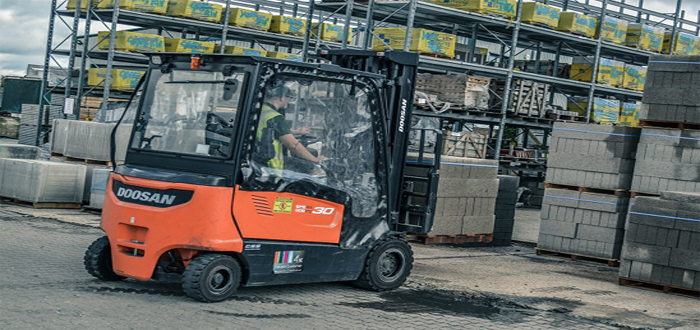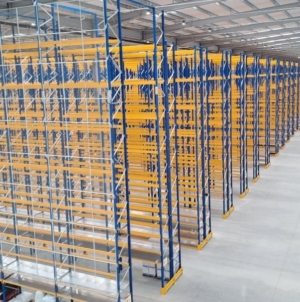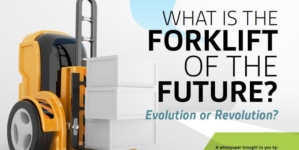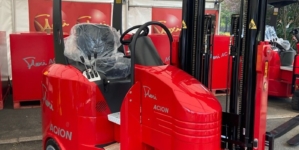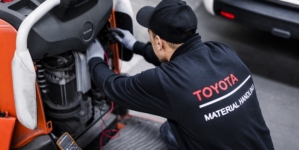-
Nutrivend selects Forterro’s Orderwise to support online expansion and streamline operations - April 11, 2025
-
ARROWXL LAUNCHES AMBITIOUS ZERO WASTE ROADMAP - April 8, 2025
-
THE BCMPA’S NEW CAMPAIGN DRIVES OUTSOURCING SUCCESS IN Q1 - April 7, 2025
-
BLACKOUT TECHNOLOGIES TARGETS TELEMATICS-INTEGRATED MOBILE DEVICE BLOCKING TO COMBAT SMARTPHONE DISTRACTION - April 1, 2025
-
Sparck Technologies awarded Royal designation - March 27, 2025
-
OpenADR Alliance announces first OpenADR 3.0 certified products with EVoke Systems, E.ON Energy and Universal Devices - March 25, 2025
-
Growing fulfilment and contract packer appoints new Managing Director - March 25, 2025
-
When is it time to invest in a WMS? Understanding the key trigger points - March 25, 2025
-
eCapital helps Vantage Recruitment on its journey to financial success - March 24, 2025
-
Hugo Beck Celebrates 70 Years of Packaging Innovation with Open House Events - March 20, 2025
Covers Timber and Builders Merchants looks to the future with Doosan electric trucks.
Covers is a family owned timber and builders merchants operating a network of thirteen branch locations across the South of England. With a history that stretches back over 170 years the business has a long-established reputation for service, reliably supplying its customers with essential building materials, such as timber, paint, bricks and blocks, from an extensive range of over 25,000 product lines.
Maintaining a focus on customer service is of prime importance to Covers. That is why the company has always invested well in its fleet of over one hundred diesel forklift trucks – ensuring that yard duties, like the loading and unloading of lorries, are performed reliably and with the greatest efficiency.
Such a harsh and dusty environment as a builder’s yard has always has been thought of as the domain of the diesel powered counterbalance truck. However, this traditional builders merchants business is turning that thinking on its head by taking a revolutionary approach to powering its materials handling fleet.
A Doosan B30X-7 3-tonne electric counterbalance truck was order in 2015 and after a successful trial period a second B30S-7 was ordered. Both machines have now been in operation at Covers’ main branch in Chichester for some time and the startling results point to a strategic shift in the type of trucks that they expect to specify for their future needs.
Along with the strong environmental reasons for considering electric trucks, Covers’ energy cost comparison of diesel vs. electricity show huge savings – a cost per hour of £0.29 for electric as opposed to £2.30 for diesel. The case was compelling.
“We are a very environmentally conscious company, so we wanted to explore the possibility of using electric counterbalance trucks in the yard,” says Adam Conrad, Group Transport Manager at Covers. “But what was impressive was that when we compared the expected total lifetime costs, it showed in favour of the electric truck – which was great. However, we needed to prove the concept by putting an electric truck through its paces on site. The trial truck proved the case, so we ordered a second.”
Covers is looking to get at least seven years from their Doosan electric trucks, which is less than the 10 year lifespan of a diesel forklift, but going by Covers’ calculations the financial savings on energy and the lower servicing costs of the electric trucks make owning and running an electric forklift fleet the best option.
The idea of moving to electric trucks was proposed by David Scammell, Managing Director of 4K Systems – Doosan’s local dealer – who presented the idea based on the potential for cost savings. After taking Adam Conrad on a visit to a customer of 4K Systems that was using electric trucks for yard duties, and after doing a few sums, the possibility of switching to electric vehicles looked promising. In addition, 4K Systems offered to provide a guaranteed buy-back after seven years.
All looked good, especially as Covers had a long-standing relationship with 4K Systems and the Doosan diesel trucks in their mixed fleet were favoured for their rugged and reliable performance.
The question was – could the electric truck perform as well as the diesel in such a harsh environment? “The first electric truck has been in place for over a year now and the second for several months, and they are really standing up to it, with no problems to date – no issues at all,” says Mr Conrad.
A big concern for Mr Conrad was whether the battery would last all day before it needed recharging. In practice, Covers found that the heavy-duty 80-volt batteries only needed to be charged every third day. “Generally, we charge the trucks overnight and top up the electrolyte once a week, which is easily manageable, especially when you look at all the positives of going electric,” he says. “We are now looking at ways to use the electricity generated by our solar panels in our charging regime.”
Listing some of the benefits of an electric fleet Mr Conrad says: “They are cleaner, no emissions, they cost a fraction in terms of energy, have fewer moving parts so servicing is cheaper, they can move in and out of our warehouses without any problems because there are no exhaust gasses, and you can easily customise how the trucks drive by setting parameters such as speed of lift and travel.”
Both Doosan electric counterbalance trucks supplied are standard with Doosan’s well renowned oil-cooled disc brakes, and have been upgraded with weather-proof cab, 5.5m triplex mast, hydraulic side-shift fork positioner and full LED road lights. Mr Conrad seems convinced electric is the way to go: “We will probably put another electric Doosan in next year in another area and we will look to roll them out to other branches too.”
“Our experience working with 4K Systems and Doosan has been excellent,” says Mr Conrad. “David put a lot of work in with facts and figures and we have been through numerous calculations to try and predict how the electric trucks are going to perform over time. We’re over a year in now and it’s all going well, every sign looks good, so we believe we’re going to get in excess of seven years life out of the trucks. After seven years, it’s a bonus. And if it all works out, our fleet will be younger at lower cost.”
A very significant factor in the equation was Doosan’s willingness to back the idea through its warranty scheme, as Adam Conrad explains: “No other manufacturer would put any warranties on an electric truck working in a builders yard, but Doosan were fully prepared to give us a five year warranty for the trucks. That was hugely important to us as it demonstrated that Doosan believe their electric trucks will work reliably in that environment, whereas other big brands didn’t want to commit. In fact, in the last two years now, Doosan has been our main supplier of counterbalance trucks for that reason – it’s their commitment that counts.”



























